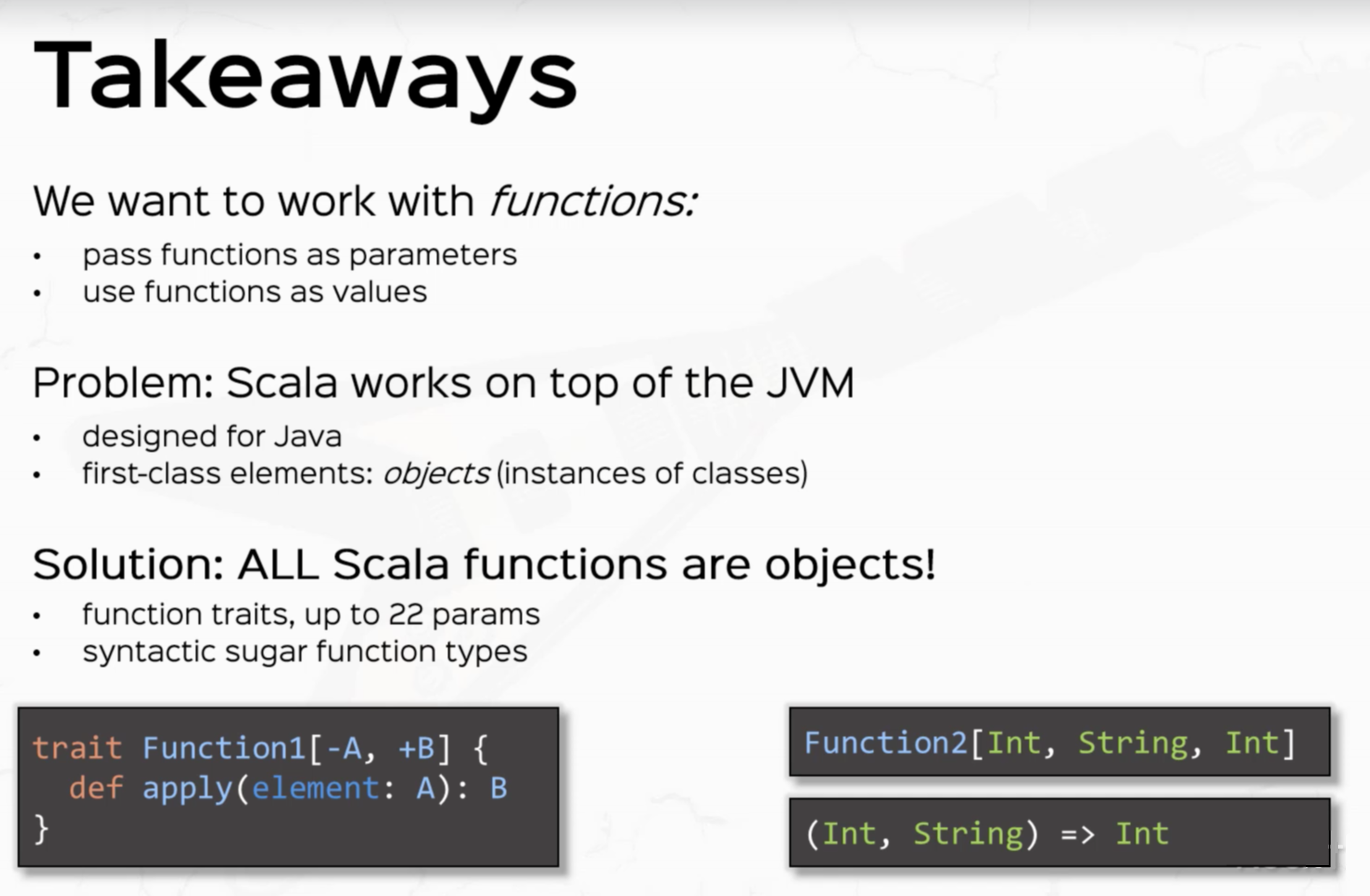ScalaSchool
##Definition Higher order functions, HOFs, are functions that accept a function(s) as input parameter(s) or return a function.
// Example 1
// map() takes a function and a seq as parameters, and returns a new seq which is
// the original sequence with the function applied to each elem
def map[T,U](f: (T) => U, seq: Seq[T]): Seq[U] = {
for {
x <- seq
} yield f(x)
}
// Example 2
// sum() returns a function that takes two integers and returns an integer
def sum(f: Int => Int): (Int, Int) => Int = {
val sumf = (a: Int, b: Int) => { f(a) + f(b) }
sumf
}
// Example 3
// same as above. Its type is (Int => Int) => (Int, Int) => Int
def sum(f: Int => Int)(a: Int, b: Int): Int = { (f(a) + f(b) }
// Called like this
sum((x: Int) => x * x * x) // Anonymous function, i.e. does not have a name
sum(x => x * x * x) // Same anonymous function with type inferred
def cube(x: Int) = x * x * x
sum(x => x * x * x)(1, 10) // sum of cubes 1 & 10
sum(cube)(1, 10) // same as above
##Notes on methods HOFs which are written to take functions as input parameters will accept methods as input, since methods can in general be converted to a function via an eta expansion.
